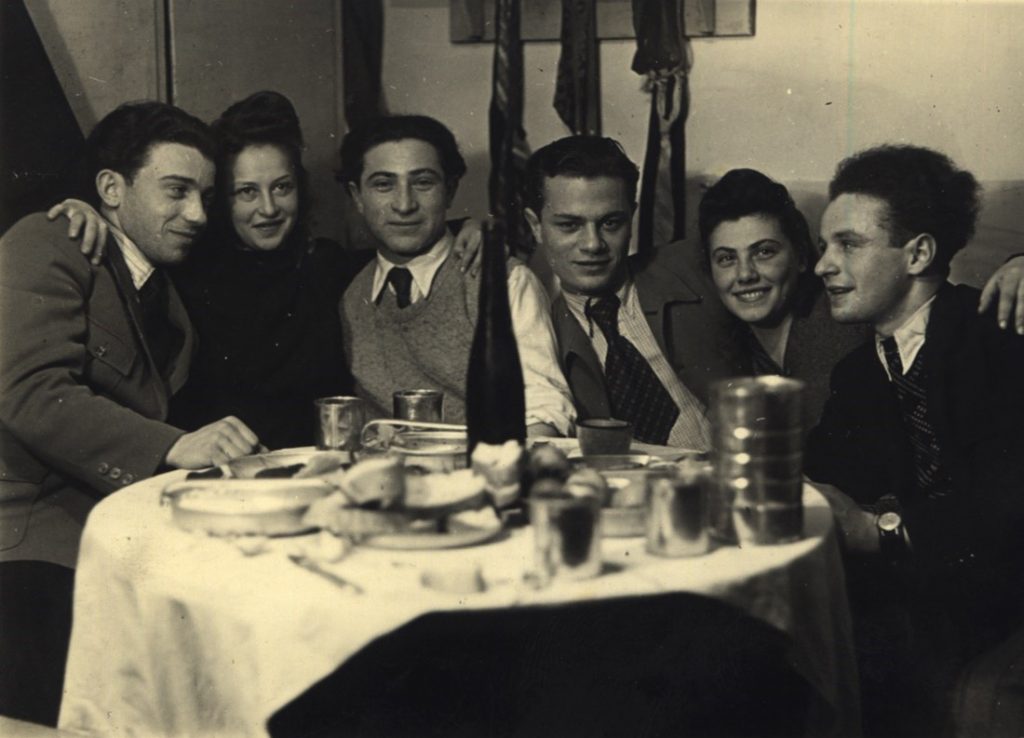Module 1: Oral History
The Evolution of Holocaust Testimony

In this section, we will learn about the history of Holocaust testimony, from the earliest projects that sought to record survivor voices, to the challenges that survivors faced when trying to speak about what they had been through, to the boom in testimony and oral history projects in more recent decades. Although Holocaust survivors and their experiences command much respect in our society today, this was not always the case. The Holocaust itself, and survivor voices in general, were not given much space in the history of World War II in the immediate decades after the war. It took some key cultural and political moments, as well as survivor activism and organizing, to create interest and attention for these stories. Since then, testimony and Oral History projects around the world have recorded tens of thousands of hours of survivors’ memories. Today, as few survivors are still alive, scholars and others interested in Holocaust commemoration are thinking about what the future of testimony will look like.
The Evolution of Holocaust Testimony: From the Margins to the Center
In this lecture, Dr. Anna Sheftel provides an overview of the history and development of Holocaust testimony.
Testimony Timeline
This interactive timeline shows the evolution of Oral History and Holocaust testimony from the immediate post-war period until the present. Click through the interactive timeline and engage with the texts, photos, and videos to understand the progression over time of Oral History projects pertaining to the Holocaust.
The Era of Witness
This reading is an excerpt from Annette Wieviorka’s book, The Era of Witness. In this classic text on Holocaust testimony, Wieviorka traces the origins and development of survivor narratives from diaries that were written in the ghettos and camps to the large-scale Oral History projects done in recent decades. In this excerpt, she talks about two projects: the Yale Fortunoff Archives and the USC Shoah project, comparing and contrasting their approaches and thus how they situate what we can and should learn from listening to survivor voices.
Questions on The Era of Witness:
- What differences are there in the approaches of the Fortunoff and Shoah projects?
- How do the different interview approaches connect to different conceptions about the purpose of recording survivors’ stories?
- What are the different functions of Holocaust testimony?
Guest Lecture: Paula Draper
Dr. Paula Draper is a historian and educator who specializes in the topic of memory, history, and Canada and the Holocaust. In the following lecture, Dr. Paula Draper discusses the history of survivor testimony in the Canadian context and contextualizes the shift towards the survivors’ willingness to speak openly about their experiences.
Guest Lecture: Klaus Mueller
Dr. Klaus Mueller is a historian and filmmaker who specializes in the history of the persecution of homosexuals under Nazi rule. He conducted pioneering research on and interviews with gay survivors of Nazi persecution. This section discusses the evolution of testimony collected on the experiences of Jewish survivors. Other groups that were persecuted by the Nazis also had to overcome cultural taboos, structural inequalities, and other factors that made it difficult to recount what they had lived through. In this short video, Klaus Mueller talks about the challenges in interviewing homosexual victims of Nazism, and what it took to collect their stories for the first time.

